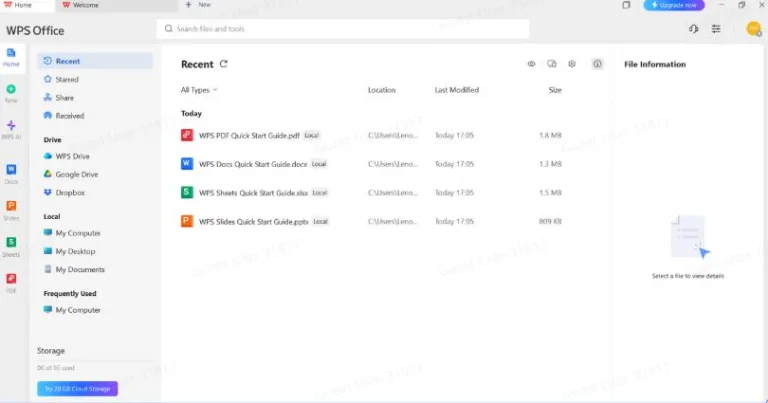How Private Cloud Empowers Regulated Industries to Stay Compliant
In today’s fast-evolving digital landscape, regulated industries, such as healthcare, finance, and government sectors, face stringent compliance requirements. These sectors are mandated to adhere to specific laws and regulations that protect sensitive data, ensure operational transparency, and safeguard privacy. However, with these regulations come significant challenges, including maintaining the security of critical information and ensuring compliance with complex, ever-changing standards. This is where private cloud solutions have emerged as an invaluable tool, helping organizations meet regulatory demands while reaping the benefits of cloud computing. With compliance-first design and full data control, OpenMetal is a strong option for sectors like healthcare, finance, and government needing secure private infrastructure.
Understanding the Private Cloud
Before diving into how private cloud solutions empower regulated industries, it’s important to understand what a private cloud is. A private cloud is a computing environment dedicated to a single organization, as opposed to public clouds where multiple businesses share infrastructure. It offers the same benefits as public cloud services, such as scalability and flexibility, but with added control, security, and compliance features. The private cloud can be hosted either on-premises within a company’s data center or by a third-party provider, but the key difference is that the organization has exclusive access to its resources.
Compliance Challenges in Regulated Industries
Regulated industries are often subject to a wide array of standards and regulations. In healthcare, for example, the Health Insurance Portability and Accountability Act (HIPAA) mandates that organizations protect patient information. Similarly, the Financial Industry Regulatory Authority (FINRA) enforces regulations for financial organizations to protect investors and ensure transparency. Governments also have various data protection laws, such as the General Data Protection Regulation (GDPR) in the European Union, that impact how companies store and manage personal data.
The challenge these industries face is ensuring that their IT infrastructure is not only secure but also fully compliant with the relevant regulations. Non-compliance can lead to severe financial penalties, reputational damage, and even legal consequences. Maintaining compliance manually can be time-consuming, error-prone, and costly, which is why organizations are increasingly turning to cloud solutions that provide enhanced security, automation, and governance features.
Key Benefits of Private Cloud for Regulated Industries
- Enhanced Security
Private clouds provide an isolated environment where sensitive data is stored, ensuring that it’s not shared with other tenants. This isolation allows businesses to implement tailored security measures that align with their specific regulatory requirements. For example, private cloud environments allow organizations to deploy firewalls, intrusion detection systems, and encryption methods to protect data. With full control over the architecture, companies can address unique compliance challenges, such as data encryption at rest and in transit, which are crucial for regulations like HIPAA and GDPR.
Moreover, private cloud providers often offer advanced security features, such as multi-factor authentication (MFA) and role-based access controls (RBAC), to ensure that only authorized personnel can access sensitive data. These features make it easier to track and audit who accesses data and how it is used, enhancing accountability.
- Data Sovereignty and Control
Regulated industries often require strict control over where data is stored and processed, a concept known as data sovereignty. Many countries have laws that dictate that certain types of sensitive data must reside within the borders of that country. For instance, healthcare organizations in the U.S. may need to keep patient records within the U.S. due to HIPAA requirements.
Private cloud solutions allow organizations to choose where their data is stored, whether on-premises or in a data center located in a specific geographic location. This ensures that businesses can comply with local regulations regarding data residency. Furthermore, since private cloud resources are dedicated to a single organization, they provide greater control over data access and storage practices, ensuring that data is managed according to regulatory requirements.
- Scalability and Flexibility
One of the primary advantages of the cloud is its scalability, and private clouds are no exception. Regulated industries often deal with fluctuating workloads due to seasonal demands, changing regulations, or growing amounts of data. A private cloud environment allows businesses to scale their infrastructure to meet these demands without compromising security or compliance.
For instance, financial institutions might experience a surge in transactions during tax season or year-end closing, requiring additional computing power. With a private cloud, the organization can scale resources up or down as needed without worrying about compromising sensitive data. This scalability ensures that businesses remain compliant even during peak usage periods.
- Automated Compliance Monitoring
One of the biggest challenges of staying compliant is keeping up with constantly changing regulations. Compliance standards often require organizations to monitor their systems continuously for security vulnerabilities, access control violations, and potential breaches of regulations. With a private cloud, businesses can automate many of these monitoring tasks.
For example, private cloud providers often offer built-in tools for real-time auditing, logging, and monitoring. These tools can automatically track system activity, detect suspicious behavior, and alert administrators to potential security threats. Automated compliance reports can also be generated to demonstrate adherence to regulatory standards, helping businesses avoid costly audits or fines.
- Disaster Recovery and Business Continuity
In regulated industries, business continuity is critical. Data loss or downtime can have serious consequences, particularly in sectors like healthcare or finance, where access to critical information is vital for operations. Private cloud solutions provide robust disaster recovery (DR) capabilities, ensuring that data is backed up and can be restored in the event of a system failure or breach.
Private cloud providers typically offer geographically distributed data centers, allowing organizations to replicate their data across multiple locations. This redundancy ensures that in case of a disaster, such as a natural calamity or cyber-attack, businesses can quickly recover their operations and maintain compliance with industry regulations. DR capabilities can also help organizations comply with regulations that require them to have business continuity plans in place.
- Cost Efficiency
While private clouds tend to be more expensive than public cloud solutions, they often offer cost savings in the long run by reducing the need for in-house infrastructure and resources. Moreover, private clouds can reduce the cost of non-compliance. By automating compliance processes and providing enhanced security, businesses can avoid costly fines and penalties associated with non-compliance.
For regulated industries, the peace of mind that comes with knowing their data is secure and compliant is invaluable. Private clouds also enable organizations to shift from a capital expenditure (CapEx) model to an operational expenditure (OpEx) model, allowing them to pay only for the resources they use. This flexibility ensures that they can manage their IT costs more effectively.
Conclusion
Private cloud solutions are rapidly becoming the preferred choice for regulated industries striving to balance strict compliance requirements with the demands of digital transformation. By offering enhanced security, data sovereignty, scalability, and automation, private clouds equip organizations with the tools needed to stay compliant with evolving regulations—while minimizing risk, ensuring business continuity, and optimizing IT costs.
For industries handling sensitive data, the private cloud offers more than just compliance—it creates a foundation for innovation. It enables businesses to modernize their operations confidently, knowing their infrastructure is secure and regulation-ready.
As these industries embrace private cloud solutions, many are also turning to video digital marketing to build trust and communicate their compliance efforts effectively. From explainer videos on data protection to client stories about secure cloud adoption, video has become a vital tool for translating complex IT strategies into clear, engaging narratives—especially in sectors where transparency and credibility matter most.






